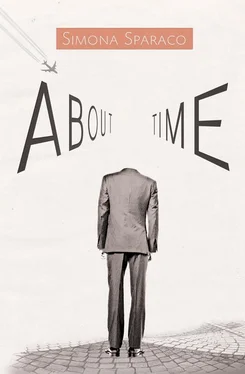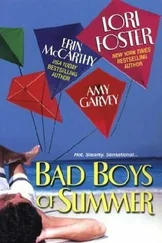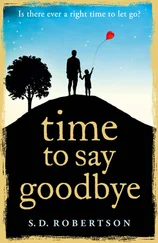The punch has attracted attention. In an instant, we’re surrounded by curious faces. Among them I see Isabelle. She looks really dejected. Giorgio is behind her. He puts a hand on her shoulder and together they walk away and disappear from my sight.
A couple of young men intervene to hold me back, but there’s no need: I’ve already vented my anger, and Federico doesn’t seem in any fit state to retaliate.
At a certain point I realize I’m not the only one staring at him mercilessly. Gaëlle is standing beside me, and there’s something diabolical and pleased in her expression.
The manager, who knows me, asks me to leave the restaurant, and he doesn’t have to insist, because I want to get out of this place as soon as possible. Maybe Luca was right, Isabelle deserves better.
A moment before getting in the taxi, I turn and see Gaëlle in the entrance. I knew she would follow me.
She reaches me in the twinkling of an eye and says, “Federico’s your friend. It’s all my fault.”
I don’t know what role she’s playing, or what her next move is, I only know that that punch wasn’t only for Federico. It was for all the sordid reasons that kept us together until a short time ago.
“Leave it alone, Gaëlle,” I reply, opening the door.
From the window of the moving car I see her rearranging her hair in front of the door, then, in a moment, she is again swallowed up by the fashionable riff-raff still proliferating behind me. Simultaneously, the telephone starts ringing. It’s Elena again. I have to answer.
“It’s your father.”
I don’t even have time to think of an excuse.
“I’m sorry, Signor Romano. He’s had a heart attack.”
THERE’S NOTHING SO HUMILIATING as arriving late to your own father’s funeral.
I missed the first plane, the one I managed to catch landed on time, but the taxi ride ate up two hours. I wasn’t worried until we drew up outside the church and I saw my cousins, who have suddenly become adults, carrying the mahogany coffin down the steps to the hearse.
Although I may have spent the night awake repeating it to myself, it still hasn’t sunk in, and now I’m barricading myself behind the absurd belief that it isn’t his body inside that coffin, that at any moment he’ll come up behind me and say in his usual resentful tone, “Finally made it, eh?”
I can’t feel my legs or my hands any more. I walk, but I don’t feel anything, just a slight sensation of pins and needles. As if I’m dreaming. I recognize a lot of people, some of whom I haven’t seen since I was a child: grey hair, lined faces, serious and composed for the occasion. Dark glasses, vague suggestions of smiles. They are still all here, as if in some way life in this city has been waiting for me. No revolutions, no disasters. Everything is more or less as I left it. Except those who have grown up until they have become other people: my cousin gives me such a tight hug he takes my breath away. My aunt, on the other hand, is more distant. Her eyes are hard, like a reprimand, not so much for what I’ve done, for my unjustifiable delay, as for what I should have done. And she has my mother’s eyes.
“It would have been difficult to put off the funeral until tomorrow,” she says as she gets in the car. “I’m sorry you didn’t get the opportunity to see him one last time. We’ll talk at the cemetery, are you following us?”
Predictably, I lose them on the way and by the time I arrive the coffin has practically already been buried. My aunt looks at me with a resigned air and raised eyebrows.
I approach the grave with the detachment of someone who just happened to be in the area. Obviously there are no names, dates or photographs yet, and as far as I’m concerned, there could be anybody in there.
“Do you remember Anna? Your father’s colleague.”
A little woman, hidden behind a pair of glasses that are bigger than her, greets me with a hug. “We met the last time you came.”
I nod, returning her embrace. “A couple of years ago.”
“Nearly seven, actually,” my aunt corrects me, with a slight shake of the head.
On the ride home, the grief at last hits me. More than grief, a sense of powerlessness at the thought that he really isn’t here any more. It’s like punching the wind, a rage that finds no outlet. It will backfire on me. And in fact, the first blow soon surprises me, it comes straight to the pit of my stomach and takes my breath away, so that I have to stop on the road, even though I know that this means keeping my relatives, who must be at my father’s apartment by now, waiting even longer.
I get out of the car and vomit. All that comes out is water. It gushes out of me, until the cramp puts a stop to it. The sky is clear, one of those smiling skies that Turin manages to come up with every now and again, the mountains can be seen on the horizon and the air is fresh. I allow myself just a few mouthfuls of it, then get back in the car and set off again.
It’s Anna who opens the door to me. She has taken her glasses off and her red, swollen eyes tell me she’s been crying continuously and may start again at any moment.
My first impression — that everything in this city is just the way it was — is belied by my father’s apartment. There’s something different, not so much in the furnishings, as in the photographs, in the colours. It’s alive. It’s the home of a dead man, but it’s alive.
I haven’t been to see him for seven years. Seven years. In my head only a couple, at most. I wonder when it was that my perception of time really started to become distorted.
My relatives are talking among themselves, they share moments, memories. I’m not here. I’m cut out. They long ago stopped waiting for me.
When Anna and my aunt tell me about all the bureaucratic formalities I’ll need to deal with, I lose the thread of what they’re saying. Just one thing hits me in the face, like a slap: “Your father had been ill for months,” my aunt says. “He wanted to tell you, it was the thing that mattered most to him. And then, just when he seemed to be responding to the treatment, he had his attack.”
I barely have time to recover when I receive another blow, an even more violent one. “He left you a trust,” Anna says, taking me aside. “It’s a lot of money, more than he could really afford. He made sacrifices all his life to put it aside for you. I know you don’t need it, he was so proud of you, and your professional success. But he also said that you were his greatest sorrow. He was always very worried about you.”
“How long are you stopping?” my aunt asks, her bag already over her shoulder.
“I have to leave tomorrow, I have an important meeting. But I’ll come back soon.”
She raises her eyebrows again, but doesn’t say anything. Soon afterwards the house rapidly empties. Once I’m alone, surrounded by half-empty wine glasses and extinguished cigarettes, all I can think about is that worry he never expressed, all those cowardly bank transfers which seemed like some kind of solution at the time. Then the excruciating feeling of remorse at the fact that I was never able to talk to him, not even once, about anything, that all I ever did was put things off, thinking that maybe one day… Without realizing that I was filling my life with postponements. With so many unforgivable not nows .
I look at him there, posing in the last photographs, framed in the old way. He doesn’t even seem to be the same person: a calmer man, a man at peace with his conscience. Only now do I realize that in his way he was trying to break through the wall of ill feeling that had built up between us. I can’t say he didn’t try. In his own way, of course, but I can’t say he didn’t do it.
Читать дальше












